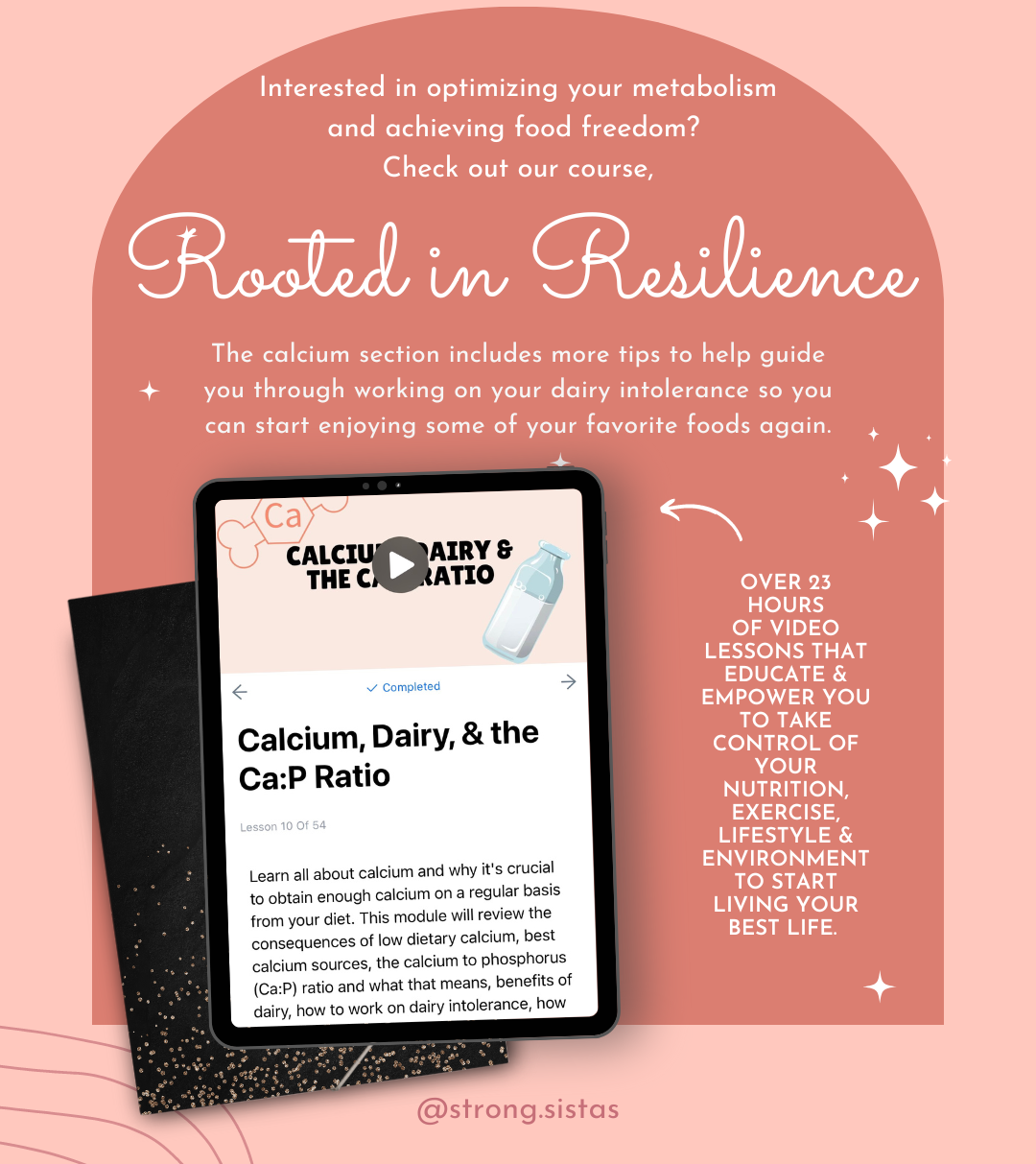Dairy is not inflammatory
Aug 05, 2022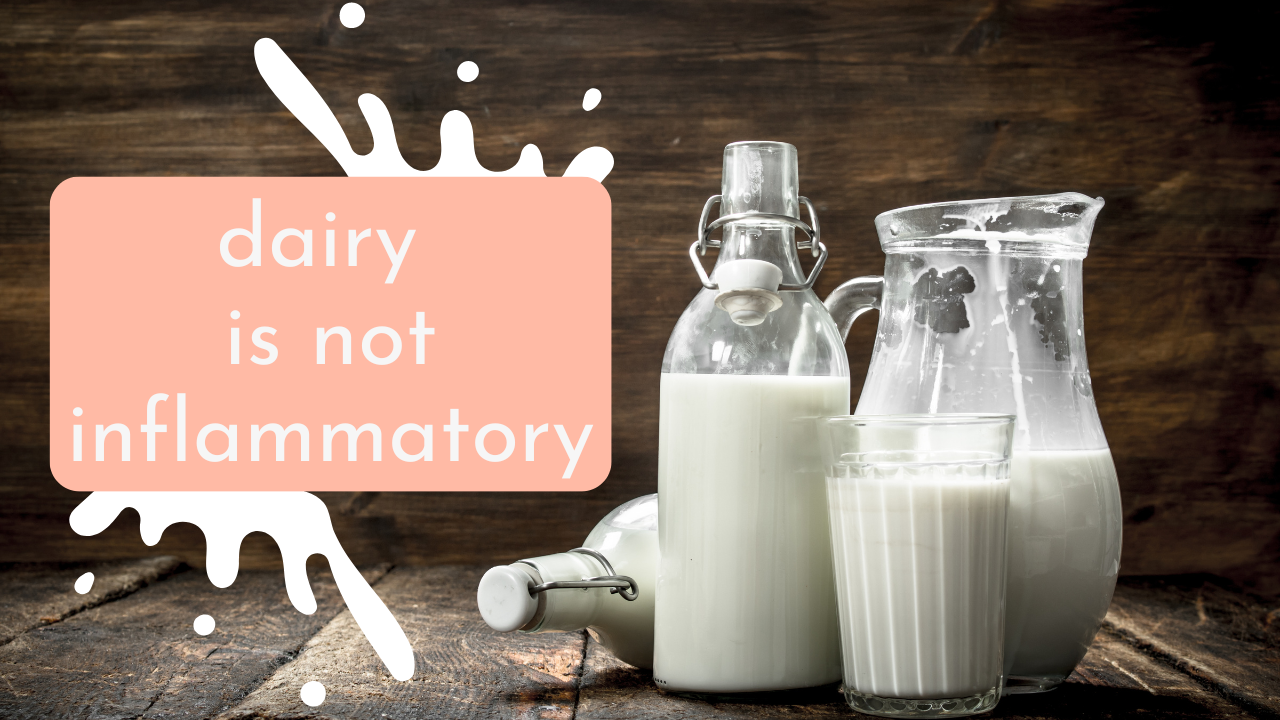
The 'inflammatory nature' of dairy is simply accepted as 'fact' in some nutrition circles despite zero science backing this claim. People then start to *fear* and label dairy as "bad", and consequently, cut it out of their diet, removing one of the most bioavailable calcium sources from their diet.
But the notions that dairy is inflammatory, mucus forming, or high in hormones are simply not true.
In 2017, a review of 50 clinical trials found that dairy had an anti-inflammatory effect. (ref) A 2019 review found that dairy products were not linked to inflammation markers. (ref) And a 2021 review showed no association between dairy and inflammatory markers. (ref)
Dairy is not inflammatory.
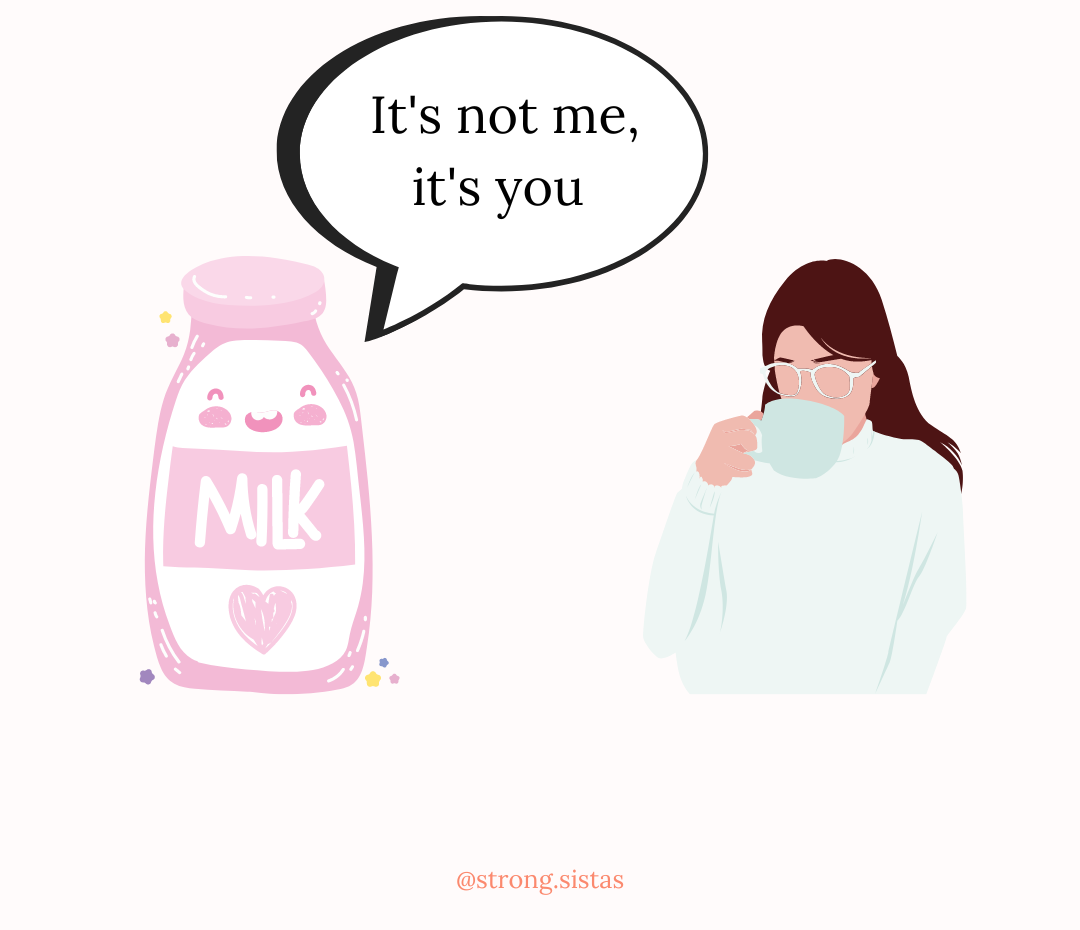
Yes there are some ‘hormones’ in milk, but the quantity is low and does not pose a health risk for humans. (ref, ref)
And no, milk does not contain blood or pus. Blood or pus may be present if the cow’s udder is infected with bacteria, but that milk is discarded by the farmer.
And there is zero evidence that milk leads to excessive mucus production. (ref) "there is no evidence (and indeed evidence to the contrary) that milk leads to excessive mucus secretion".
Instead, dairy is nutrient-dense (and delicious).
Dairy is one of the best sources of bioavailable calcium. It contains B vitamins and fat soluble vitamins, Lactoferrin, easy to digest carbs, and all essential amino acids (making it a complete protein).
It's kind of an insult to milk to call plant-based alternatives 'milk'.
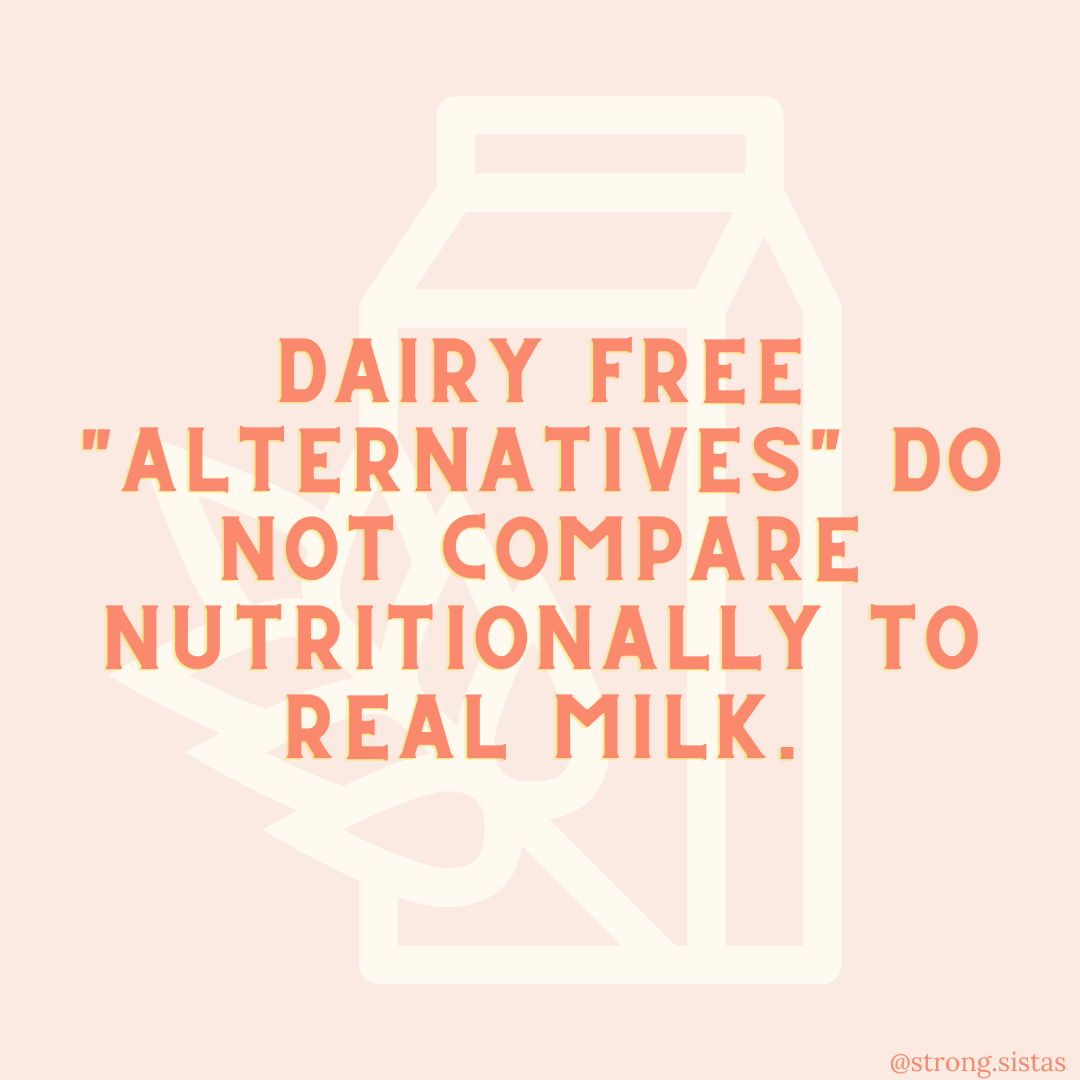
Humans have been consuming dairy for over 10,000 years. But there has been a very recent food allergy epidemic where many people have to continuously restrict food to reduce symptoms - notably, cut out dairy to “reduce inflammation”.
In fact, I have been reading a lot of 'old fashioned' cookbooks from the 1800s and early 1900s recently, and all of them included dairy. None of them included oat milk or nut teas.
Recipes from 'The Common Sense Cookbook', published 1894. All of the dessert recipes used milk, instead of the common almond, soy, or oat milk varieties today.
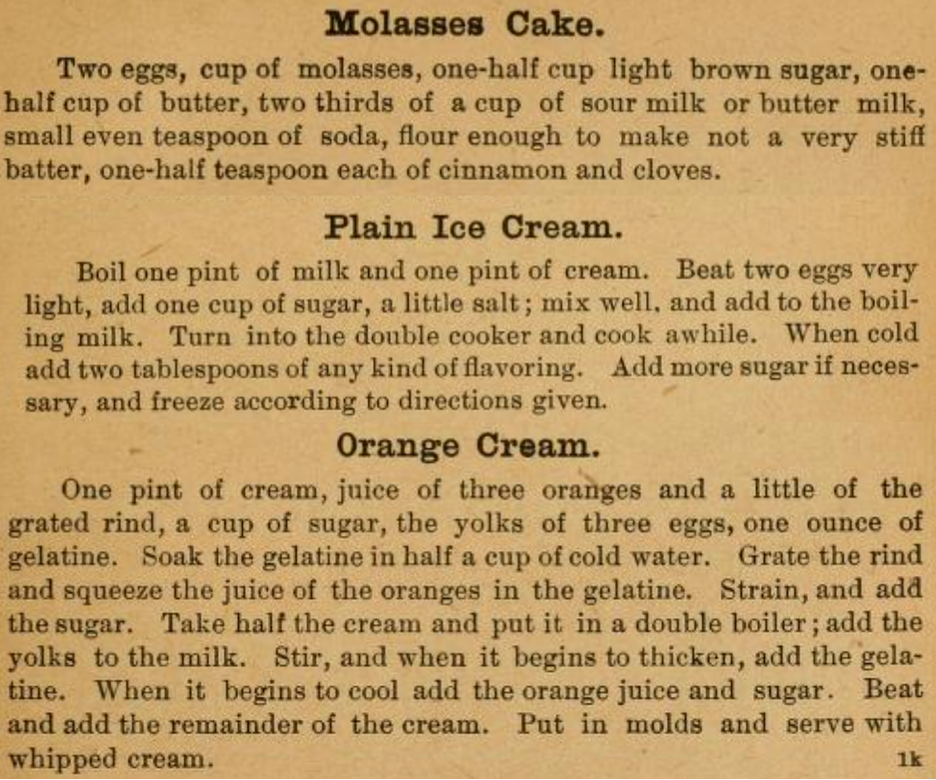
So, why all of a sudden do so many people have problems with dairy when it was a food staple?

Is it actually the dairy that’s causing an inflammatory response? Or have restrictive diets + junk food + hard to digest food + excessive stress + environmental toxins negatively impacted our guts and metabolism? What about the excessive gums and preservatives in the milk alternative products?
Many people turn to these milk alternatives, like oat 'milk' and almond 'milk', when in the long run, these actually make dairy intolerance worse by damaging our guts and down regulating our lactase enzyme production (needed to digest lactose in milk).
Do you really think a food we have been eating for 10,000 years is inferior to nut teas? Not to mention, planted based milk varieties (nut teas) are much more profitable for big food companies relative to milk! (ref)
Massive marketing dollars are being spent to try to convince you that this processed crap is somehow superior to a traditional real, whole food.
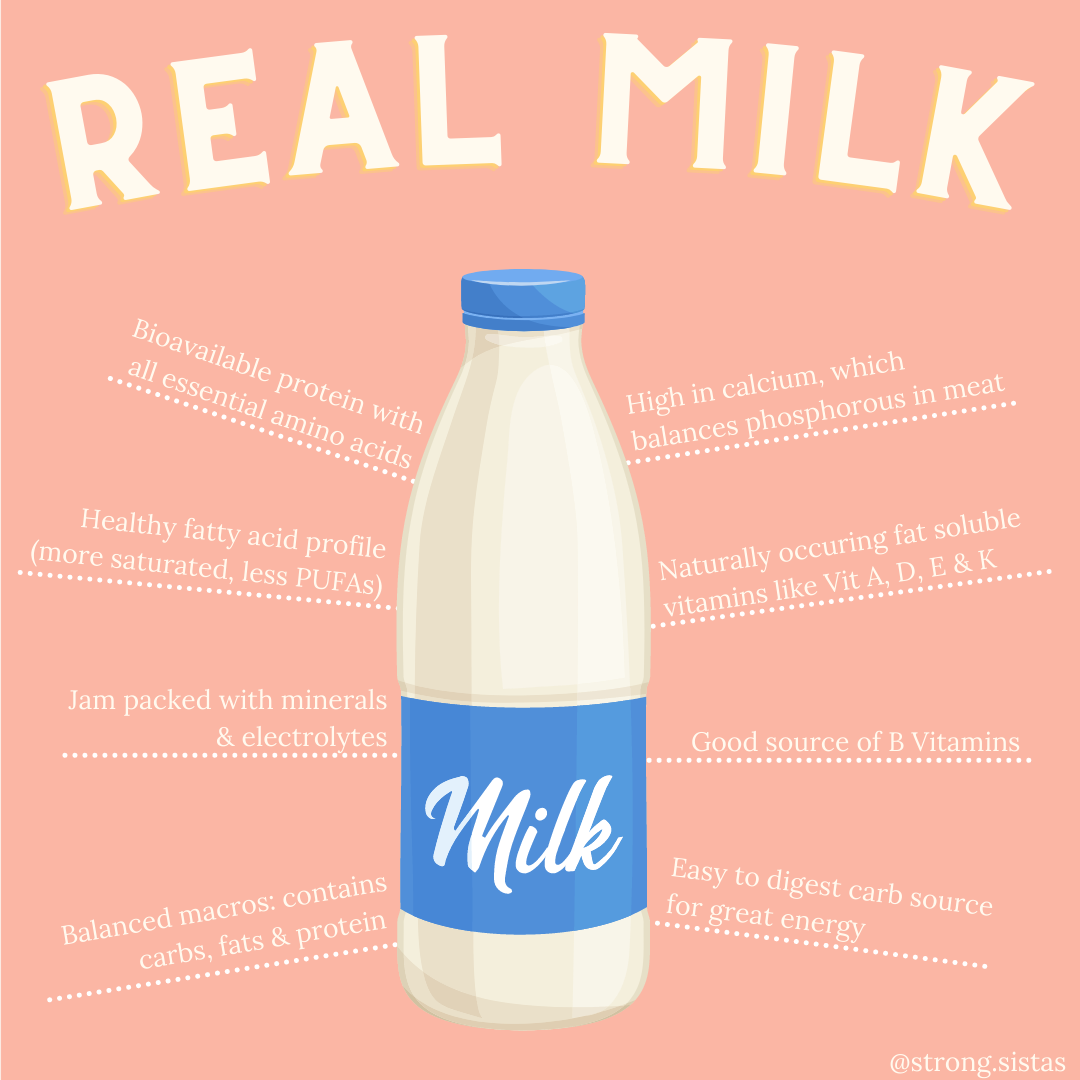
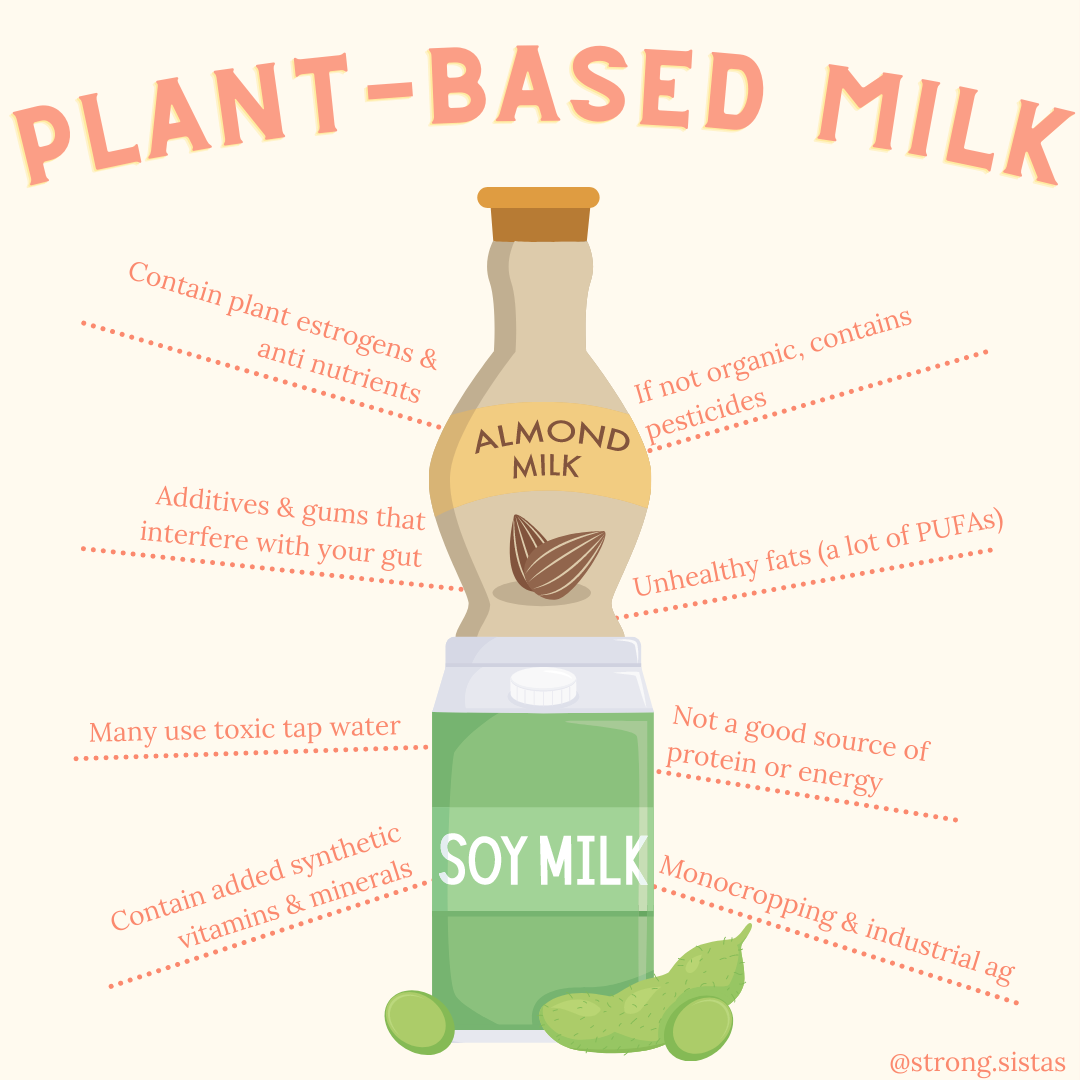
But what if I can't tolerate dairy?
Well, you can improve your dairy tolerance, as we discussed in this blog post, but it does require some patience and work.
Optimal digestion is technically not a 'necessary’ function for survival relative to, for example, breathing - in other words: you don’t need to digest food perfectly to be able to run from a bear.
When we are stuck in fight or flight response, ‘somethings gotta give’, and that something is often digestion, skin health, hair health, etc.
To reduce food intolerances, we don’t need to make replacements with nut, oat, or cauliflower teas. We need to improve the energetic state of our whole body (i.e. - improve our metabolisms).
Addressing intolerances requires a twofold effort, addressing gut health while improving metabolism (the two go hand in hand)… and adding dairy back in slowly. We think this is something worth working on since quality dairy products are a super food!


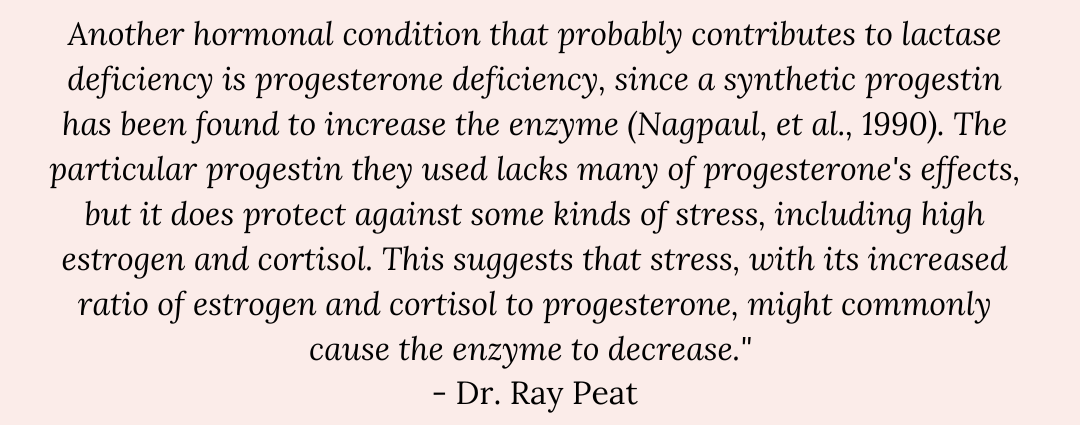
OF COURSE dairy quality matters (however, there are some people that can tolerate all forms of dairy!). Sometimes people react to the additives in milk and not the milk itself. In fact, some dairy has been shown to contain microplastics. (ref)
As always, we suggest supporting your local farmer when you can (find yours at www.realmilk.com or www.getrawmilk.com). If you don’t have a local farmer, we suggest finding a brand that produces milk local to you (so it doesn't have to travel long distances and be heavily processed) and sells at grocery stores. One brand we like is Kalona Supernatural, which is Organic non homogenized milk that is sourced from regenerative farms. In fact, this is the brand of cottage cheese we use!
IN SUMMARY:
- The literature does not support the myths that dairy is inflammatory, mucus forming, or high in hormones
- Humans have consumed dairy for 10,000 years, and only recently has there been an epidemic in dairy intolerances
- Dairy intolerance can be improved by working on gut health and improving your metabolism.
Our course, Rooted in Resilience can help you improve your metabolism, break past food fears & nix food sensitivities to tolerate more foods, not less - while still achieving all your body composition, physique & health goals. We share the exact steps we took to once and for all move past our 'lactose intolerance', where we now include dairy (a superfood) for most meals every single day.


